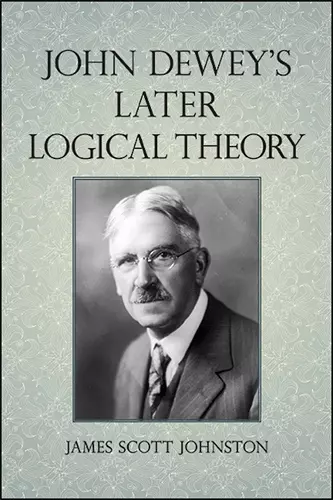John Dewey's Later Logical Theory
Format:Paperback
Publisher:State University of New York Press
Published:2nd Jul '21
Should be back in stock very soon

A study of the development of Dewey's logic from 1916-1937 leading up to his final 1938 book on the subject.
By 1916, Dewey had written two volumes on logical theory. Yet, in light of what he would write in his 1938 Logic: The Theory of Inquiry, much remained to be done. Dewey did not yet have an adequate account of experience suitable to explain how our immediate experiencing becomes the material for logical sequences, series, and causal relations. Nor did he have a refined account of judging, propositions, and conceptions. Above all, his theory of continuity-central to all of his logical endeavors-was rudimentary. The years 1916–1937 saw Dewey remedy these deficiencies. We see in his published and unpublished articles, books, lecture notes and correspondence, the pursuit of a line of thinking that would lead to his magnum opus. John Dewey's Later Logical Theory follows Dewey through his path from Essays in Experimental Logic to the publication of Logic: The Theory of Inquiry, and complements James Scott Johnston's earlier volume, John Dewey's Earlier Logical Theory.
"Johnston's well-written work will benefit scholars and advanced students alike … Highly recommended." — CHOICE
"Excellent work. Johnston thoroughly surveys a broad range of issues that have to be addressed in order to understand and assess Dewey's logical theory." — Thomas Burke, University of South Carolina
ISBN: 9781438479422
Dimensions: unknown
Weight: 349g
257 pages